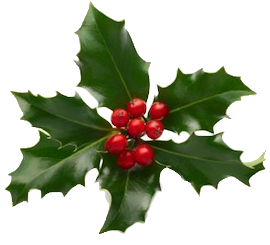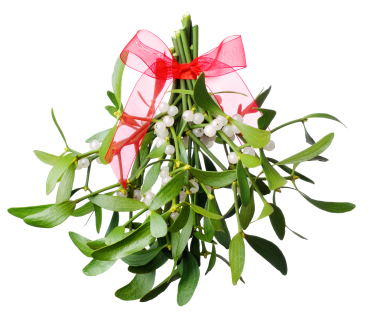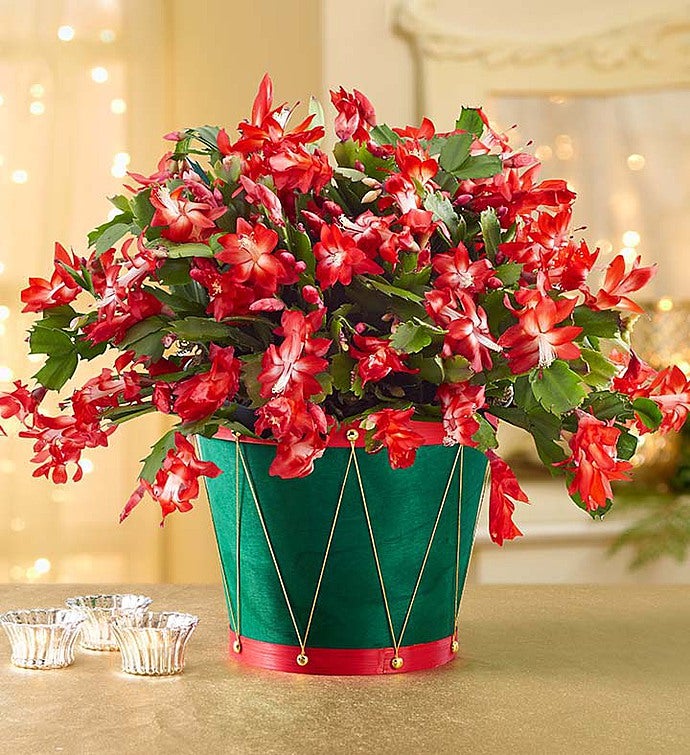Animals can chew plants for a variety of reasons. If your family plans to bring holiday plants
into the home this season, it is important to be aware of any potential safety
concerns your pets may face if they eat your flowers.
Poinsettia
Poinsettia plants have
a bad rap, but are much less toxic than most people assume. While they can cause irritation to the mouth,
and stomach upset if ingested. Pets are
unlikely to consume enough to cause real fatality concerns. Even so, keep these plants up high, or outside,
for those avid roughage consumers.
Holly and Mistletoe
 Holly and mistletoe are also popular holiday plants. These
plants, along with their berries, have a greater toxicity level than the poinsettia.
Symptoms of illness from ingesting these plants can include intestinal upset,
such as vomiting and diarrhea, excessive drooling, and abdominal pain. Larger ingestions, especially of mistletoe
can cause very serious symptoms, and sometimes death. Keep these plants well out of reach of any of
your pets, or avoid them in the home altogether.
Holly and mistletoe are also popular holiday plants. These
plants, along with their berries, have a greater toxicity level than the poinsettia.
Symptoms of illness from ingesting these plants can include intestinal upset,
such as vomiting and diarrhea, excessive drooling, and abdominal pain. Larger ingestions, especially of mistletoe
can cause very serious symptoms, and sometimes death. Keep these plants well out of reach of any of
your pets, or avoid them in the home altogether.

Amaryllis
The Amaryllis can be
highly toxic to both cats and dogs. The
Amaryllis causes salivation, gastrointestinal abnormalities (vomiting,
diarrhea, decreased appetite, and abdominal pain), lethargy, and tremors in
both cats and dogs. The bulb is the most
toxic part of the plant.
Christmas Cactus
Fortunately, the Christmas Cactus plant is beautiful and not
toxic to dogs in either its parts or flowers. The same lack of toxicity applies
for cats. However, any fibrous plant material can cause irritation to the
stomach and intestine, leading to vomiting or diarrhea.

The Christmas Tree
Whether artificial or real, having a Christmas tree in your
home can present a challenge with both dogs and cats. Lights and ornaments can pose a risk to the
most adventurous of our pets. Natural Christmas
trees are fairly non-toxic, but pets that ingest enough of the needles and oils
may see some mild stomach upset. The
water for the Christmas tree has the potential to have molds, fertilizers and
bacteria throughout the month, and pets that drink the Christmas tree water may
sicken as well.
Playing it Safe
If you do choose to bring any of these plants into the home,
or place them near the entry way where your pet can reach them, be very careful
about where you are placing them. Cats, especially, need to be considered,
since they can jump to high shelves. If your cat is a known plant chewer, you
will probably be better off choosing imitation plants over the real things.
But, if your dog or cat does manage to ingest any part of these holiday plants,
call your veterinarian or poison control immediately to find out what you
should do to minimize the damage.




No comments:
Post a Comment